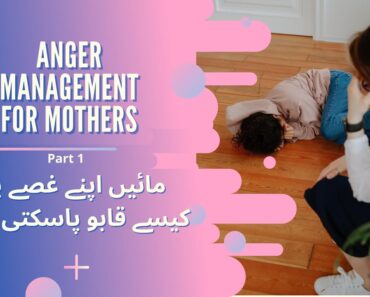While some schools are running around calling arborists about tree stumps for outdoor learning chairs, others aren’t quite so privileged.
In a normal year, it would be about this time when our Toronto neighbourhood schools would flood local businesses with requests for auction items and ask parents to give up their seasons’ tickets. Local light posts and schoolyards would be adorned with signs that collectively and excitedly exclaim, “the fall fun fairs are coming!”
A good fun fair is the mark of a privileged school. Some schools go as far as to sell wristbands for the bouncy castle and fast-passes for rides at $25 per kid. Some offer Square for payment and feature food trucks. They aim to be bigger, better (and bouncier) and they hope to generate more revenue than last year.
But this isn’t a normal year, and those schools—often the ones that are so desirable to parents that they drive property values in their catchments —will still be OK when the dust settles and the vaccines eventually roll out and things return, in one way or the other, to “normal.”
It’s the schools that won’t be OK—like my son’s school —that I worry about.
I am parenting four kids in a neighbourhood just outside of downtown Toronto, three of whom attend three different schools (a logistical dream, really, especially in the mornings). My nine-year-old son, Isaiah, has a severe intellectual disability and attends an intensive support program at a school in Toronto’s Regent Park neighbourhood, a low-income or mixed-income area of the city. They stopped hosting their fun fair because they lost money on their last one. Though they live next door to schools that boast fun fairs that garner tens of thousands of dollars of support, they are most often overlooked. Or ignored. The pandemic has simply dragged a yellow highlighter across those inequities.
The school is housed in a stately old building and it is flanked by newness—a mix of community housing and condos, all part of the recent years’ efforts to “revitalize” the neighbourhood. And while everything is certainly shinier these days, fresh coats of paint have failed to address the systems of oppression that keep Regent Park’s demographics largely unchanged.
The neighbourhood is inhabited predominantly by Black, Indigenous and people of colour (BIPOC) who live in poverty. Many of Isaiah’s classmates are the city’s most vulnerable: BIPOC, disabled children who live in poverty. Many of their homes are multi-generational, with grandparents staying home while the parents work, often multiple jobs, outside of the home. Food insecurity is significant, with more than a third of the 350+ kids using the school’s breakfast and lunch programs. For many years, the school went over-the-top with its grade 8 graduation celebrations because they knew, for many kids, this would be their last graduation before the harsh realities of cycles of poverty did their thing.
When something bad happens in Regent Park, we hear about it on the news. Wherever there’s an opportunity to call out something negative, we do. We label the neighbourhood “high risk” when we talk about crime and policing. When all is quiet and still in Regent (which is the majority of the time), the silence is deafening, and telling, of a place most of us only know because we drive through it. When “nothing” happens in Regent Park, nobody cares.
I mean, I care, but I was born and raised in an identical neighbourhood in Toronto’s West end. I attended the same community school from JK through to grade 6, and was aware, from a very young age, that even when my family had very little, we had so much more than other families I knew. Plus, we had the invaluable currency of our whiteness.
Still, I used the breakfast and lunch programs alongside many of my classmates in the midst of an immigration boom that consisted primarily of Somali refugees, and was a latch-key kid from age seven onward. I looked over my shoulder on the way home and locked our two-lock door and deadbolt behind me before settling in to wait for my parents. Neighbourhoods like mine and Regent Park make a kid grow up quickly.
Today, my son’s school is faced with challenges that go far beyond the ones they face every day: the struggle to keep class sizes low in order to heed the advice of public health officials. At the beginning of the year, it was slated to have a grade 7/8 split class of 34 kids. Thirty-four kids going home at the end of the day to thirty-four homes where many parents can’t work from home, during a pandemic with a rapidly spreading virus that disproportionately impacts their very demographics. The risks can barely be quantified and the outcome is, frankly, terrifying.
The few parents that are comfortable enough to approach the issue have had no luck while neighbouring schools’ parent councils with more privilege have. The notion that one school is more important than another is absurd, but is consistently reinforced when actions are taken in some schools and not in others.
As a society, we don’t know as much about COVID-19 as we would like. But what we do know is that it disproportionately impacts BIPOC, specifically women working the front lines. And we know what we need to do as measures of safety and community care to help slow the spread of the virus. Many neighbouring communities, steeped in privilege, can choose to heed that advice with relative ease. Others, like Regent Park, can’t. And it’s not for lack of wanting to—it’s a sheer lack of resources and a history of neglect. While some schools are running around calling arborists about tree stumps for outdoor learning chairs, Regent is running drives to provide its students with masks and PPE, again being forced to accept the fate that we know what the right thing to do is, we just won’t be doing it for them. We have the resources, we just won’t be spending them here.
This is happening in our literal backyard—not a world away—and as parents and caregivers, we should be appalled. The last six months, and the world we are entering into, gives us ample opportunity to create our own curriculum. What better lesson to teach our children than to speak up for those who cannot? What greater reality than to acknowledge that by failing to speak up, we are actually telling these children and their families, in the middle of the largest social movement and health crisis ever to have occurred, simultaneously, that they actually don’t matter?
This year, let the absence of fun fairs pave the way for true advocacy. If the measure of a society can be found in how it treats its most vulnerable members, we are failing miserably. But the year has only begun, and there is time yet to pull those grades up.

































